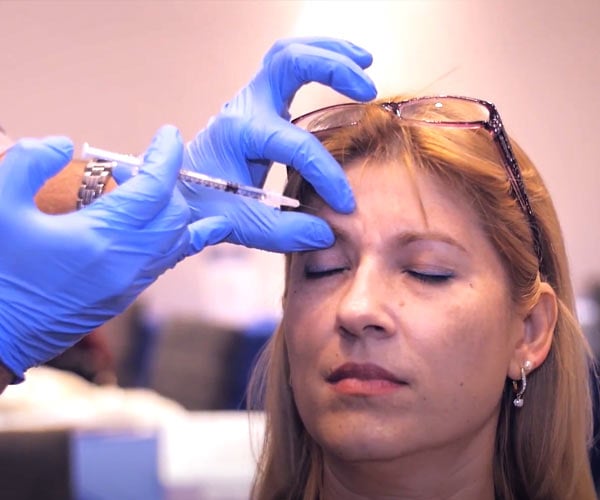Nurse Esthetician
By Dr. Stephen Cosentino
PRESIDENT OF EMPIRE MEDICAL TRAINING
A nurse esthetician is a highly specialized registered nurse who supports medical and esthetic staff at medical spas and cosmetic surgery practices. They work closely with supervising physicians and cosmetic dermatologists to administer treatments like Botox®, dermal fillers, and laser hair removal.
If you’re considering a career in nursing and care about helping people look and feel their best, a nurse esthetician career could be right for you. Here’s what you need to know.
What Is a Nurse Esthetician?
Nurse estheticians may also be known as aesthetic nurses, esthetic nurses, or cosmetic nurses. They are medical professionals — usually registered nurses or nurse practitioners — certified to perform cosmetic treatments that nonmedical aestheticians and medical assistants cannot.
Nurse estheticians typically work under the supervision of physicians or dentists in outpatient medical or dental clinics or medical spas. In these settings, they typically perform or provide support for cosmetic procedures such as:
- Botox injections
- Dermal filler injections
- Laser treatments for skin and hair issues
- Microdermabrasion
- Tattoo removal and other superficial cosmetic procedures
- Liposuction and other body sculpting procedures
- Scar removal and other minimally invasive cosmetic surgeries
Nurse estheticians may also work in surgical practice settings under the supervision of plastic surgeons. Here, they may assist with surgical procedures and other corrective treatments for patients who’ve experienced physical trauma, burns, or major surgery.
Differences Between Nurse Estheticians and Other Esthetic Professionals
In a typical aesthetic practice, nurse estheticians and certified aestheticians who are not nurses may perform some of the same duties. Both can generally lead superficial treatments that don’t break the skin, such as:
- Chemical peels
- Temporary hair removal
- Massage
- Spa treatments
Non-nurse aestheticians’ duties stop there. By contrast, nurse estheticians working in the medical aesthetics field may be cleared to administer injectable treatments (Botox, dermal fillers) and provide pre-operative support for more invasive procedures such as facial plastic surgery.
Moreover, nurse estheticians’ training gives them greater depth of medical knowledge. Many nurse estheticians choose to continue their training and become nurse practitioners (if they aren’t already), physician’s assistants, or full-fledged physicians.
How to Become an Esthetic Nurse
Becoming a certified esthetic nurse is a multi-step process that typically takes several years. But if you’re committed to helping others look and feel their best, it’s worth the effort. And the compensation isn’t half bad either: According to the Bureau of Labor Statistics, registered nurses earned about $75,000 on average in 2020.
To become a certified esthetic nurse specialist, you’ll need to:
- Get the education required, including a nursing degree — often a two-year associate’s degree (ADN) or four-year bachelor of science degree (BSN) in nursing
- Pass the NCLEX RN exam to become a registered nurse
- Gain two years of work experience under a board-certified physician practicing in one of the four core competencies of esthetic nursing: plastic/aesthetic/cosmetic surgery, dermatology, facial plastic surgery, or ophthalmology
- Gain 1,000 hours of practical experience in one of the four core competencies
At this point, you’re ready to pursue formal esthetic nursing board certification through the Plastic Surgical Nursing Certification Board. You can take one of two board certification exams, depending on which type of esthetic practice nurse you want to be: a Certified Plastic Surgical Nurse (CPSN) or a Certified Aesthetic Nurse Specialist (CANS).


